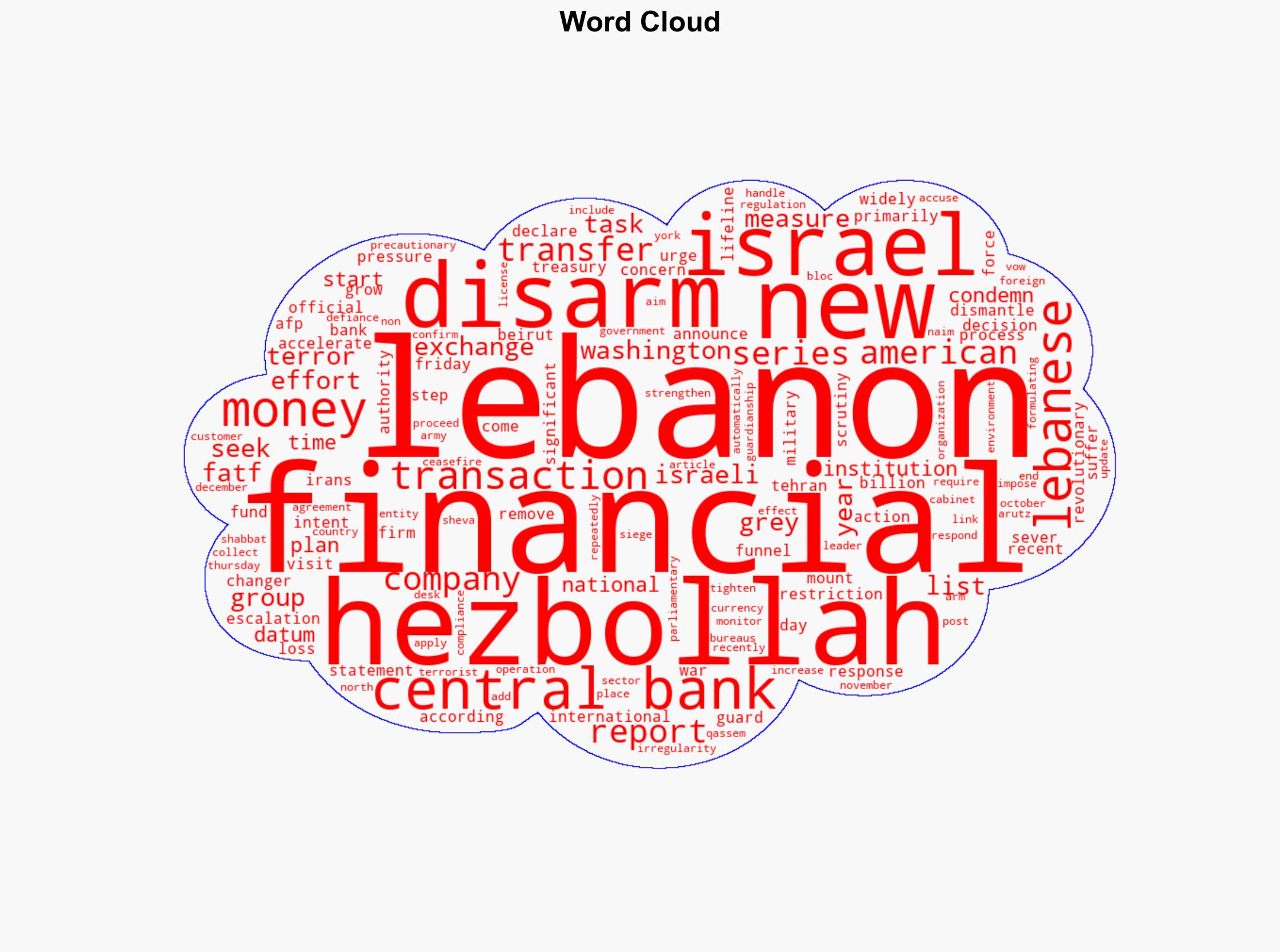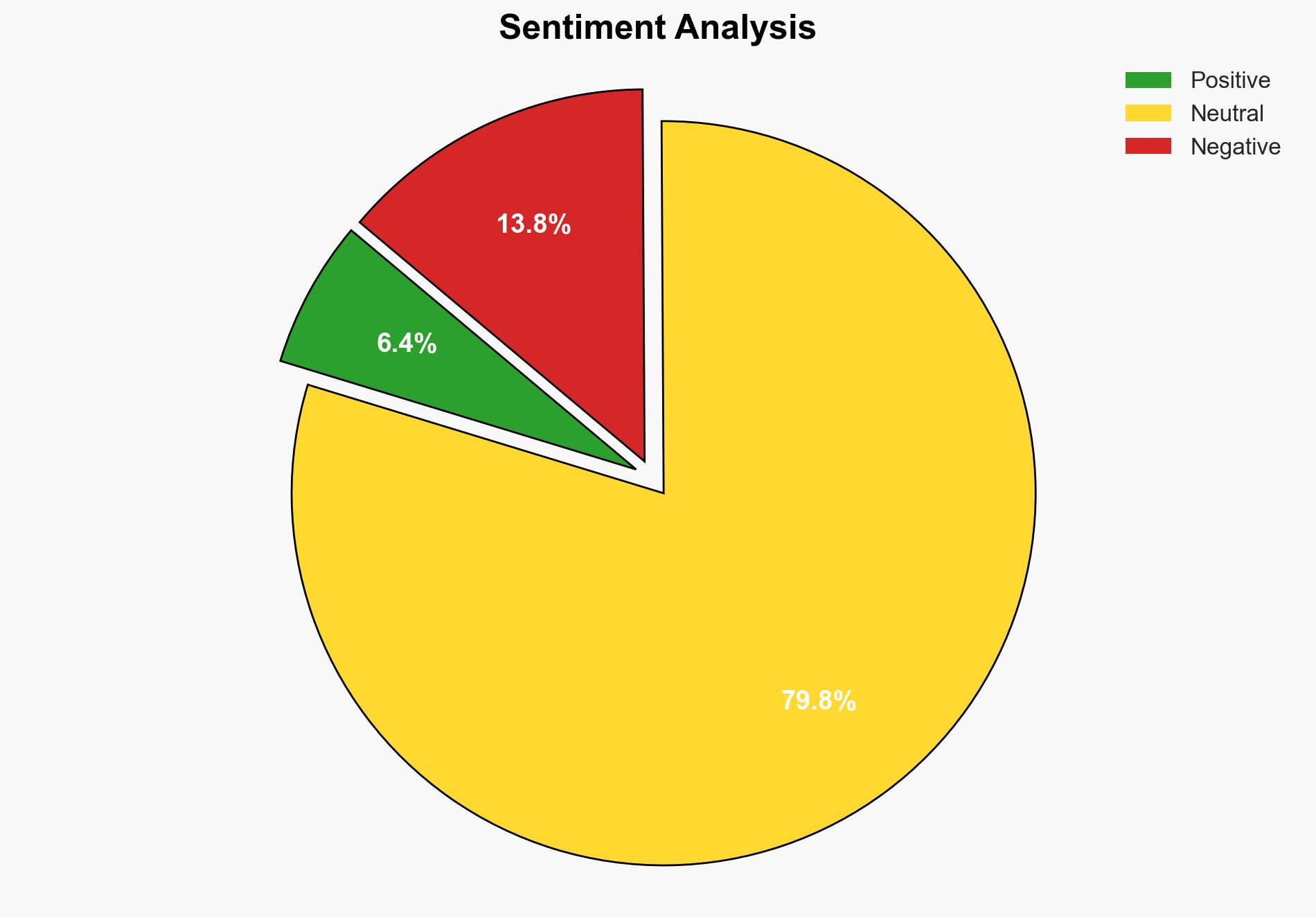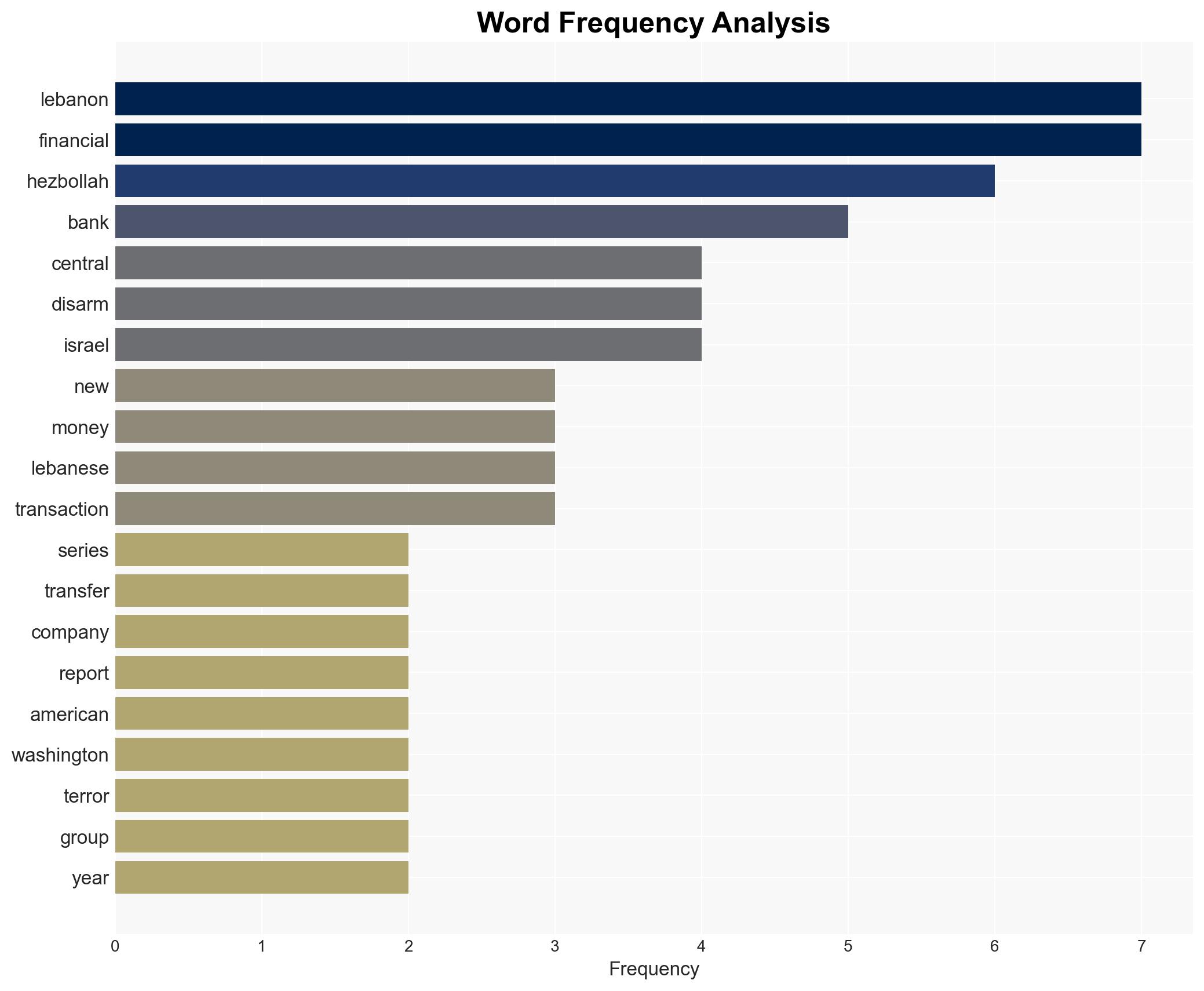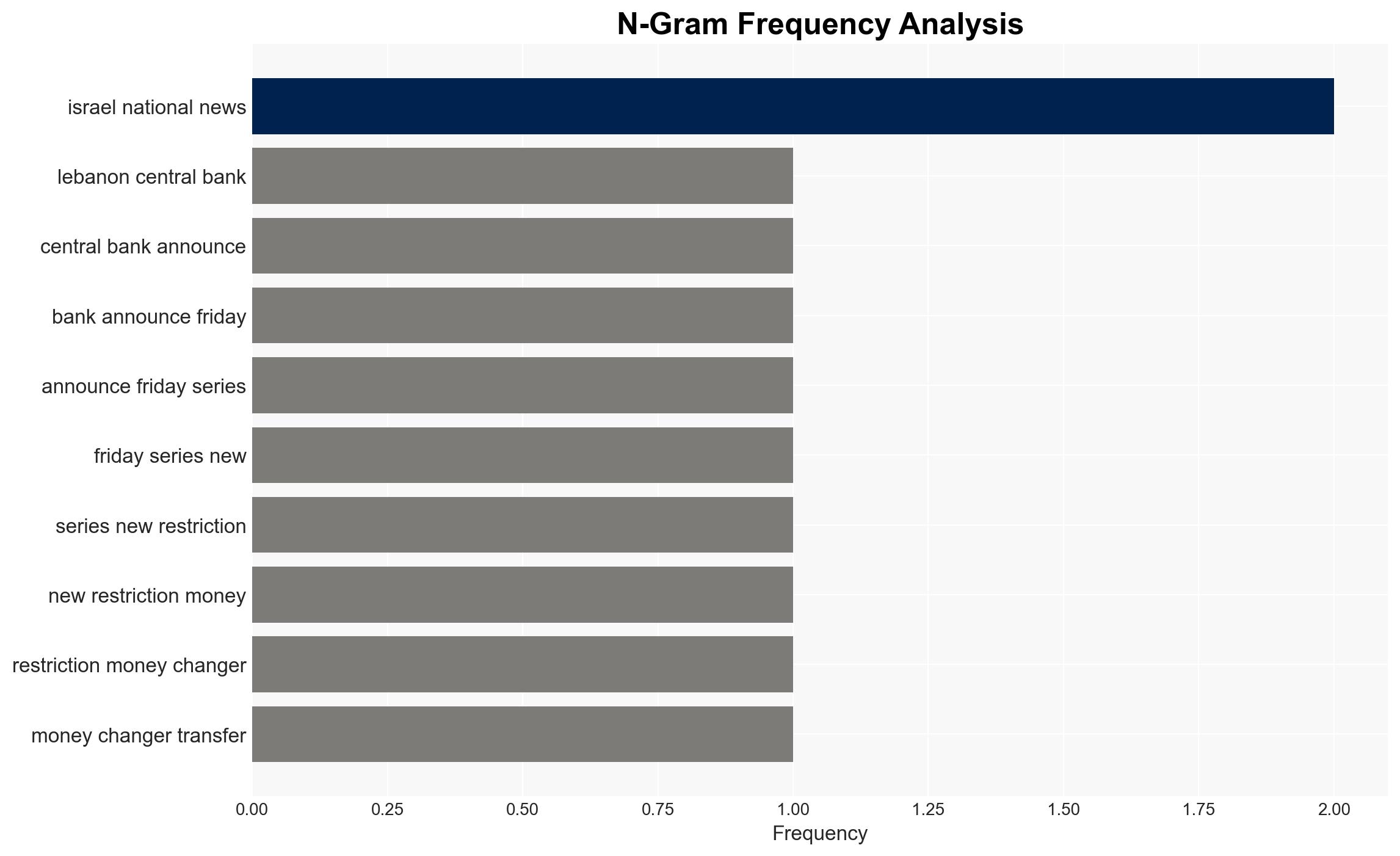Lebanon cracks down on cash transfers amid US push to cut Hezbollah funding – Israelnationalnews.com
Published on: 2025-11-14
AI-powered OSINT brief from verified open sources. Automated NLP signal extraction with human verification. See our Methodology and Why WorldWideWatchers.
Intelligence Report: Lebanon cracks down on cash transfers amid US push to cut Hezbollah funding – Israelnationalnews.com
1. BLUF (Bottom Line Up Front)
The Lebanese central bank’s new restrictions on cash transfers are a strategic response to international pressure, particularly from the United States, to disrupt Hezbollah’s financial networks. The most supported hypothesis is that these measures are primarily aimed at appeasing international bodies and avoiding further sanctions, rather than a genuine effort to dismantle Hezbollah’s financial operations. Confidence Level: Moderate. Recommended action includes monitoring the implementation of these measures and assessing their impact on Hezbollah’s financial capabilities.
2. Competing Hypotheses
Hypothesis 1: The Lebanese central bank’s actions are a genuine effort to dismantle Hezbollah’s financial networks in response to international pressure and to avoid further sanctions.
Hypothesis 2: The measures are primarily symbolic, aimed at appeasing international bodies and reducing scrutiny, without significantly impacting Hezbollah’s financial operations.
Hypothesis 2 is more likely due to Lebanon’s historical reluctance to confront Hezbollah directly, the complexity of Hezbollah’s financial networks, and the potential political repercussions within Lebanon.
3. Key Assumptions and Red Flags
Assumptions: It is assumed that the Lebanese government has the capacity and willingness to enforce these financial restrictions effectively. Another assumption is that Hezbollah’s financial operations are heavily reliant on the channels being targeted.
Red Flags: The timing of the measures coinciding with US diplomatic visits may indicate external pressure rather than internal initiative. The lack of detailed enforcement mechanisms raises questions about the effectiveness of these measures.
4. Implications and Strategic Risks
The primary risk is that these measures could escalate tensions within Lebanon, potentially destabilizing the government if Hezbollah perceives these actions as a direct threat. Economically, Lebanon risks further isolation if international bodies deem the measures insufficient. Politically, failure to effectively implement these measures could lead to increased scrutiny and sanctions from international actors.
5. Recommendations and Outlook
- Monitor the implementation of these financial restrictions and assess their impact on Hezbollah’s operations.
- Engage with Lebanese authorities to provide support and ensure compliance with international financial regulations.
- Best-case scenario: Lebanon successfully implements the measures, reducing Hezbollah’s financial capabilities and improving international relations.
- Worst-case scenario: The measures fail to impact Hezbollah significantly, leading to increased international sanctions and internal political instability.
- Most-likely scenario: The measures have limited impact on Hezbollah, but they temporarily alleviate international pressure on Lebanon.
6. Key Individuals and Entities
Hezbollah: A key player in Lebanon’s political and military landscape, heavily reliant on external funding.
Lebanese Central Bank: The institution responsible for implementing the new financial restrictions.
US Treasury Department: Actively involved in international efforts to cut off funding to Hezbollah.
7. Thematic Tags
Structured Analytic Techniques Applied
- ACH 2.0: Reconstruct likely threat actor intentions via hypothesis testing and structured refutation.
- Indicators Development: Track radicalization signals and propaganda patterns to anticipate operational planning.
- Narrative Pattern Analysis: Analyze spread/adaptation of ideological narratives for recruitment/incitement signals.
Explore more:
Counter-Terrorism Briefs ·
Daily Summary ·
Support us
·





